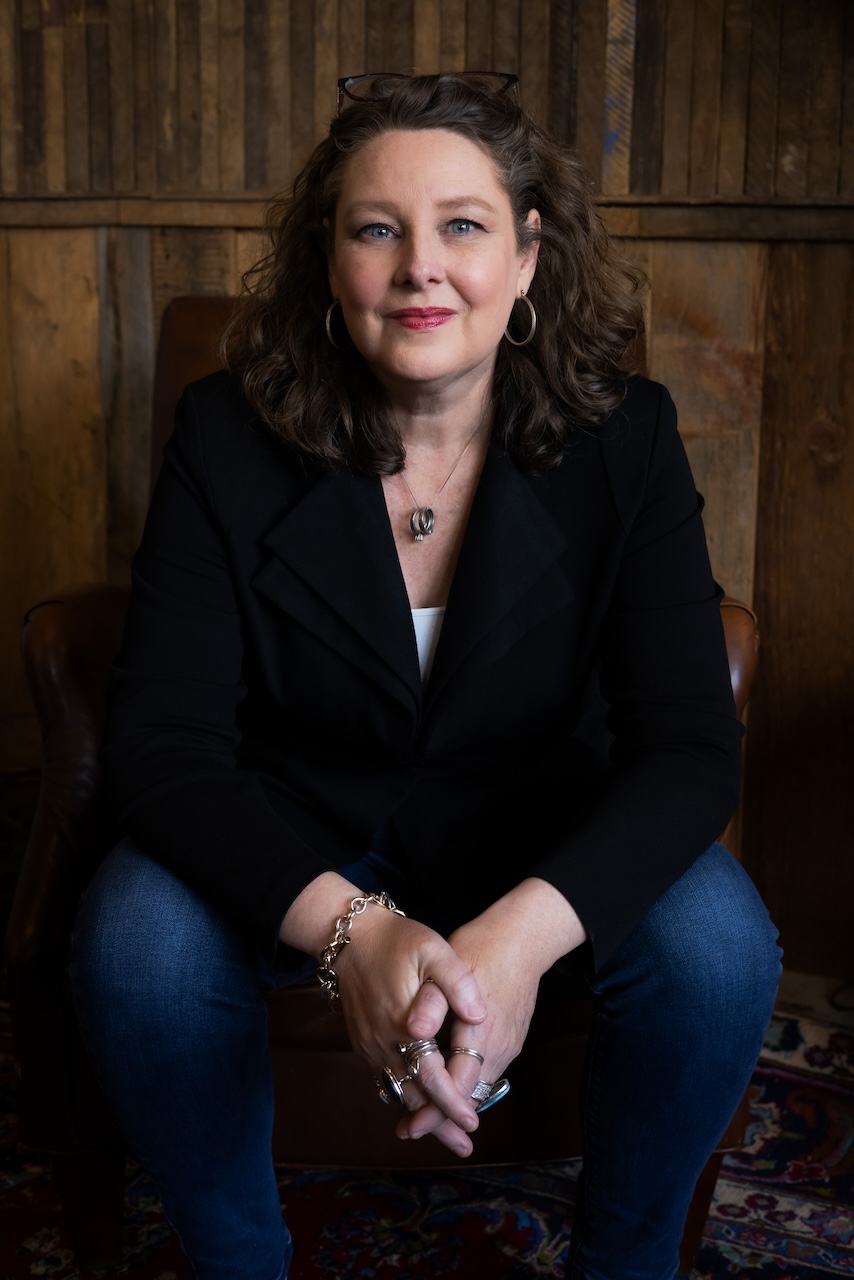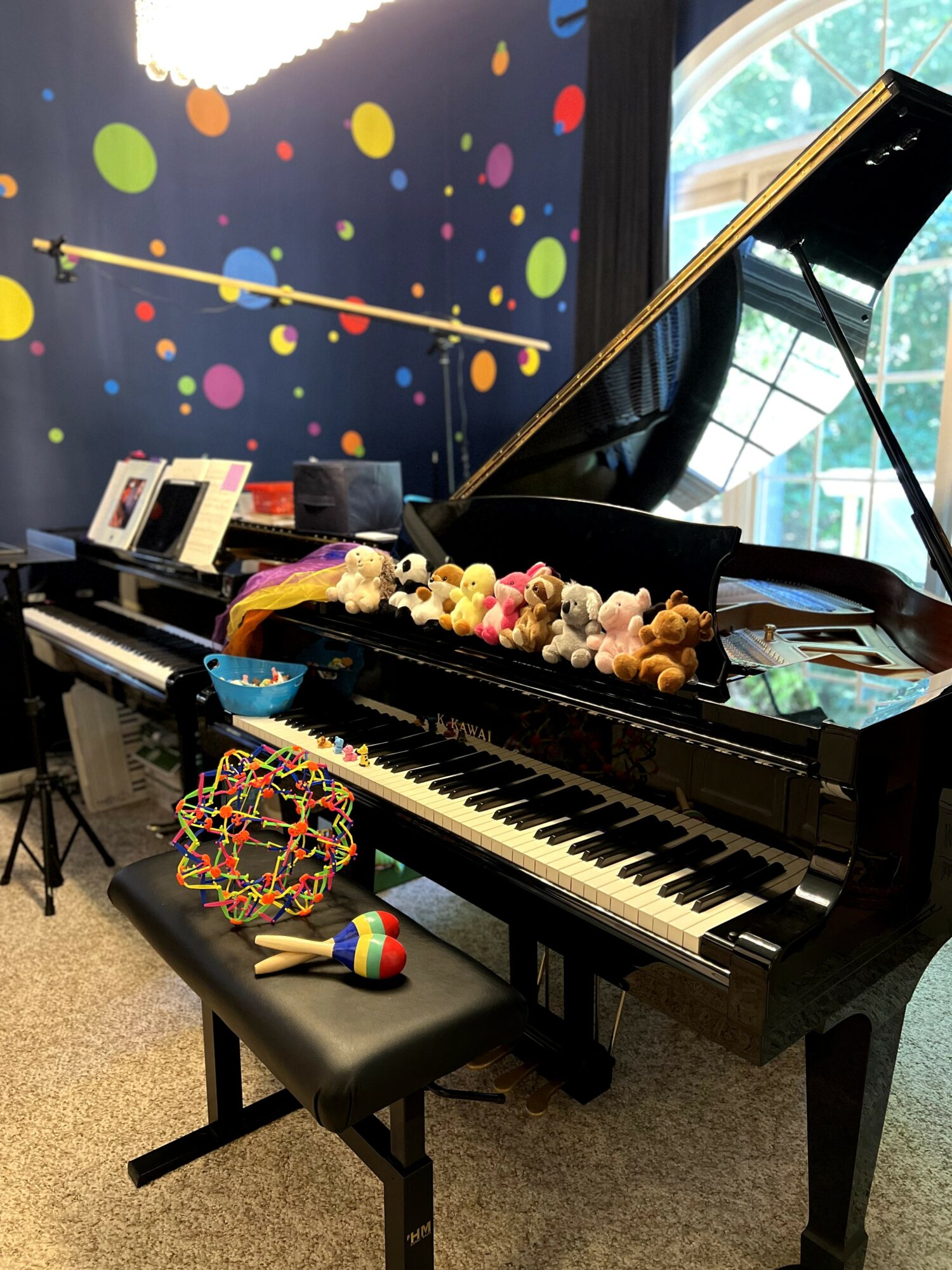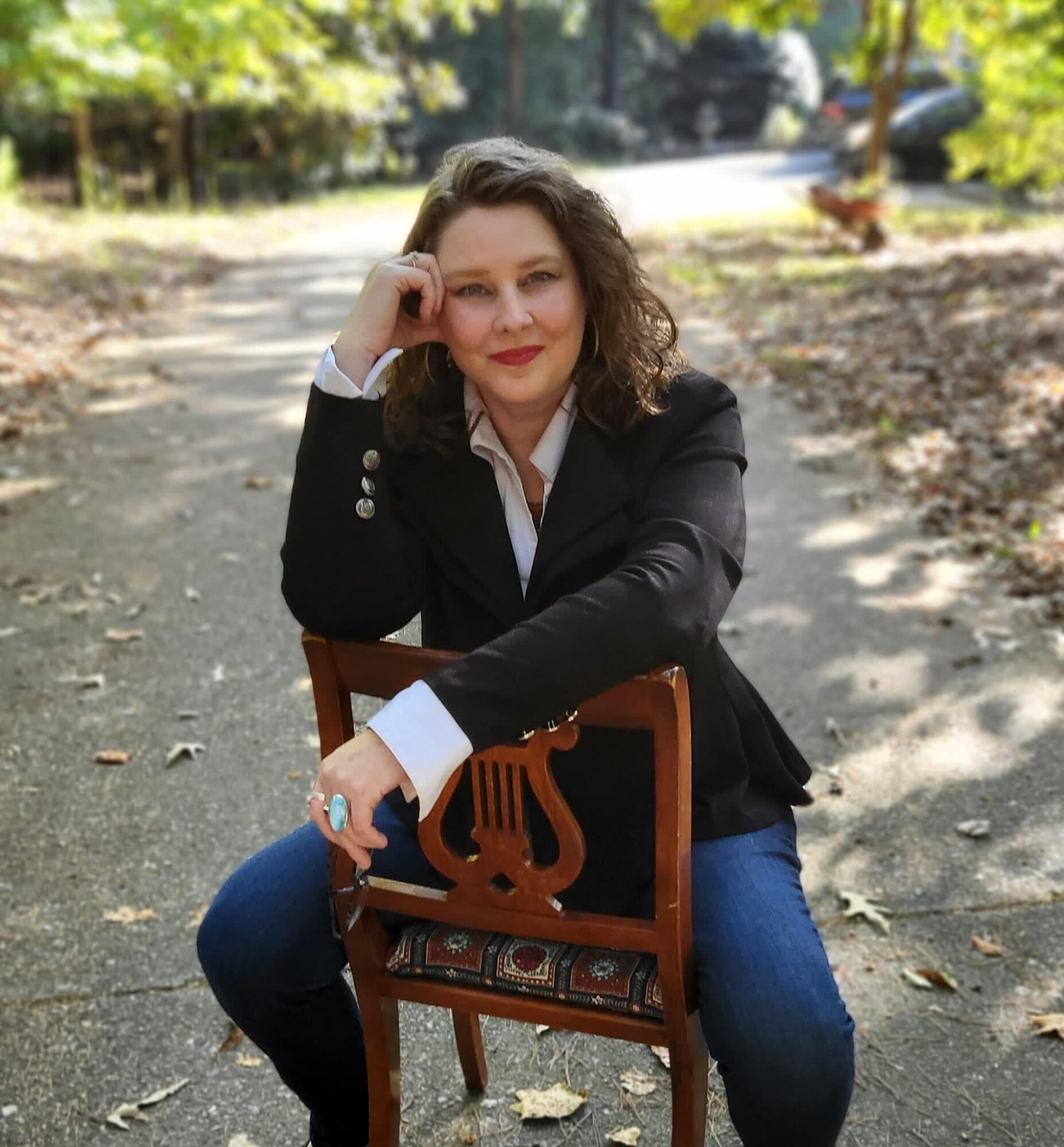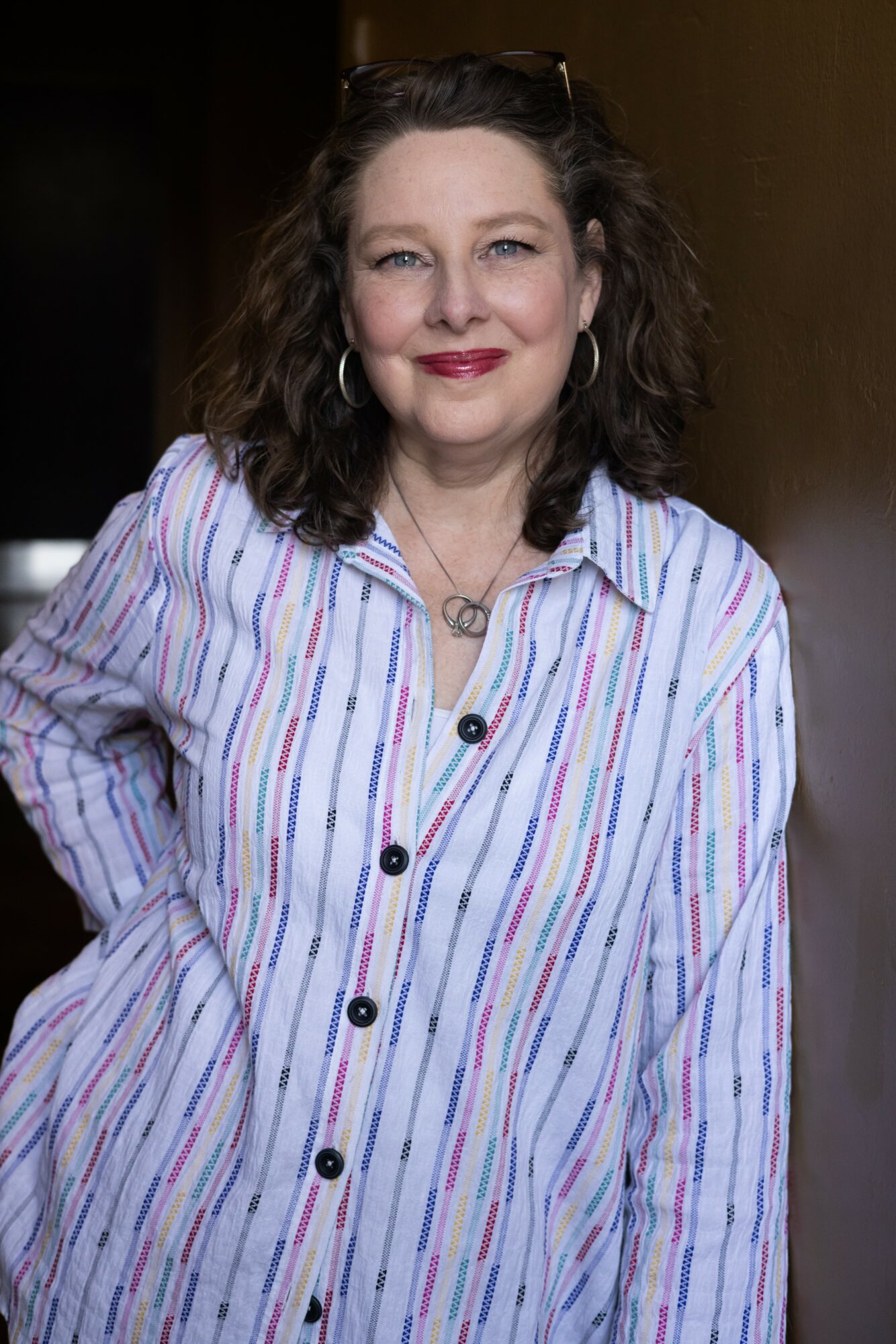

We recently had the chance to connect with Melissa Slocum and have shared our conversation below.
Hi Melissa, thank you so much for joining us today. We’re thrilled to learn more about your journey, values and what you are currently working on. Let’s start with an ice breaker: What is something outside of work that is bringing you joy lately?
My adult children now live in their own apartments and are pursuing their own unique lives. It brings me joy to visit them and to just watch and listen as they navigate their 20’s. I see all the amazing things they are doing with school and work. I hear about their friends and things they are involved in. I empathize with their struggles. It is a beautiful but hard time of life for them, and it is joyful to be included in their highs and lows. I love seeing what they get excited about, and how they come up with creative solutions to their problems.
The other night on a call with my son, he talked about a speech he was preparing and how he chose a much more light-hearted topic for the assignment than most of his peers. He knew he could skillfully and creatively prepare a solid speech, but the humor and perspective he could also bring would ultimately help people feel lighter. As a film student he understands storytelling and pacing, so he knows he can provide some levity amid controversial and hard speeches. What a joy it is to know your child is also doing their best to uplift those around them!
Last week when visiting my daughter it was a joy to hear other people compliment her, or say things to me like – ‘your daughter is so talented’ or ‘your daughter has been such a great employee, a team player,’ or ‘your daughter was so kind to us when….’ I know all parents hear that at some point, but now that they are out on their own navigating their worlds, it is joyful to see and hear how well they are doing. I love that they are embracing their independence while still relying on Mom and Dad from time to time.
Can you briefly introduce yourself and share what makes you or your brand unique?
I am the founder and owner of MusicGro, the company which supports all of my Creative endeavors. I support and help grow Creatives so that their work more profoundly impacts their communities. I do that through my piano studio (Music For Life Piano), my Small Business Coaching & Coaching collaborations, my podcast (Sounds of Encouragement), my online course for music teachers (Music Lesson Pathways), and my collaborative Substack (Empowered Creatives). I am also the business development and management consultant for a rapidly growing tech firm.
What sets me, my work, and my brand apart are how my values show up in me and my work. I value Creativity and Honesty and here is what that looks like:
a) I don’t rely on templates or ‘full proof plans’ or someone else’s pyramid scheme to get my clients where they want to go. I solve problems creatively with each individual client. Piano lessons are individually crafted based on a student’s goals and abilities. Small business coaching is tailored to each client’s needs and market. I care more about bringing out the creative genius in each person, than about creating Concert Pianists or selling fake 6 or 7-figure financial targets that are meaningless. That requires creative thought, research, and curiosity on my part. I know from experience and my education in Organizational Communication that what works for one person in one situation will not work for another person in another situation. So helping people solve problems or overcome challenges is a creative process between creative people.
b) I don’t bullshit people and don’t have time to deal with bullshit from other people. I am honest about how hard it might be to learn a particular piano piece, or how hard it might be to craft a business plan. But at the same time I will be right by your side to help you and encourage you to reach your goals. I don’t disappear, or blame and shame when things don’t work out as planned. We work through the hard things together because there is so much that can be learned in doing hard things. I am honest with my clients and I ask my clients to be honest with themselves so that together, we can achieve great breakthroughs. While I value honesty, that does not mean I am brutal or that I ’trash talk’ people. I follow the work of organizational leaders and researchers like Brene Brown, Simon Sinek, Adam Grant, and others who know that, “clear is kind.” When I am honest with piano students and small business clients, I am respectful, kind, supportive, and encouraging. Offering clarity in a kind way opens up opportunities for learning and it demonstrates a level of emotional intelligence.
Great, so let’s dive into your journey a bit more. Who taught you the most about work?
My parents taught me the most about work. I was born in the early ’70’s during the energy and economic crisis, and grew up in the 80’s during the failures of the ‘trickle down’ economic policy. It required two parents working full time to support a family of five in Wisconsin. We were solidly middle class, but there weren’t any extras.
My mother was a registered dietitian who managed hospital kitchens and catering most of her career. She was ahead of her time in terms of management, but she had the ‘corporate 9-5’ career with benefits and stability. I learned so much from her about how big organizations operate (for better and worse), about the management of large departments, about navigating sexism and discrimination at work, and about no job being ‘beneath’ anyone. There were days she had to jump into the kitchen to run the dishwasher during a lunch rush. There were times she had to stay late to get reports done for the VP’s. There were days she would have to work in the kitchen on the prep line or be the cashier because someone on her staff was sick. And then she would put on her white coat and go to the floors to do nutrition counseling, calculate tube feedings for doctors, and work with nurses to help feed sick patients. She wasn’t seen as a boss who told people what to do. She was known to be a team leader who cultivated team players who could take pride in their work. Again, she was ahead of her time.
From her I learned what it looked like to have a salaried management position. I learned how to navigate discrimination. I learned that managers take out the trash and wash the dishes just as much as they sit in management meetings. I learned the value of caring about employees and their families, even taking meals to them at home when they were sick. I learned that managing people was the hardest job. I learned that the value of managing well meant the sum of the parts was exponentially greater than the whole. I learned that work could be hard but that it could also be meaningful and impactful in a community. I also learned that if she could do it, I could do it too.
My dad was a craftsman, carpenter, and general contractor who built custom residential homes. He was a small business owner. He typically built 2-4 houses at a time and rotated small crews through all phases of the construction and handled all the subcontractors, vendors, owners, and realtors. It was a lot for one person to manage while also helping raise a family. He often had more flexibility in his ‘hours’ but would either work more after we had gone to bed, or would help with household tasks. I learned a lot about design from him – designing efficient house plans, how best to situate a house on a lot, how to balance function with aesthetics. I learned how to organize large scale projects and keep track of all the things. I learned how he quietly and patiently mentored less experienced carpenters. I learned how to respect all people regardless of how they looked, or how much money they seemed to have or not have. I learned how he handled conflicts calmly, quietly, and patiently with everyone. I learned what quality work meant by working alongside him and for him. I learned about contracts, keeping your word, and being honest in business.
In all of my jobs and work experiences my parents continued to listen with interest and support whatever work I was doing. They would remind me of important lessons when needed – like document everything and always do your very best work.
What have been the defining wounds of your life—and how have you healed them?
In a word – therapy.
During college I finally sought therapy to deal with childhood sexual abuse. It was some of the hardest work I’ve done on all fronts of my psyche. But I did the work and integrated all the pieces of myself back into a more functional and healthy version of myself. I understand how much work goes into healing from that type of trauma and appreciate those who have also had to go through it.
As part of an oversees church mission team, I travelled to Liberia in 2000. I was among the leadership group and it was a very rough trip which ended in our team having to leave the country early for safety reasons. Not long after arriving home I was experiencing symptoms of PTSD and sought counseling to deal with those issues. Thankfully it was mild and my treatment only took a few months. It also made me appreciate what so many people, especially military personnel, go through as a result of their service.
Shortly after my husband and I were married we suffered a dangerous ectopic pregnancy and miscarriage. I was working for a church at the time and my senior pastor told me I would ‘get over it.’ I was appalled at his cavalier comment and sought counseling to help deal with the grief and anger. That was also a brief but good experience with counseling. While I would never wish that experience on anyone else, I do have special empathy for people going through that.
When our children were young, we figured out that our oldest who was 5 1/2 at the time had some uncharacteristic behaviors. Our pediatrician recommended a psychologist who was an incredible practitioner for our family. She set us on a path of better parenting and working as a family to solve problems and celebrate wins together. Much later we learned we were dealing with Autism Spectrum behaviors and ADHD, but because we had such a positive start we were able to continue to navigate challenges with unity and love. That family counseling work helped me work through my specific guilt issues as a parent while also learning to be a better parent for both of my kids.
More recently (just before Covid) I found myself in professional situations in which colleagues were blatantly racist. I had never dealt with such overt and disgusting comments, and I found myself speechless. I sought out counseling from a black woman counselor to help undo my own internalized racism and misogyny. It was a good two years of reading, learning, practicing to use my voice, and understanding how deadly my silence was. I continue to learn and unravel my biases but I have forgiven my past silences and ignorance and I now work to create change with and for all marginalized people.
Through every experience or hardship I have come through to the other side with more empathy for myself and others, more wisdom, and a clearer voice for social justice. I have learned just how resilient I am. I have become more whole and more myself each time. I would never say I welcome hardship or wounds in life, but having navigated them successfully each time has giving me more patience and less judgement with other people.
Alright, so if you are open to it, let’s explore some philosophical questions that touch on your values and worldview. Is the public version of you the real you?
In most situations there is no difference between the ‘public’ me and ‘at home’ me. I have done enough leadership in community and professional organizations that I am comfortable being myself whether I am on stage or in the audience. I’ve also done enough therapy and work on myself that I am comfortable with my flaws and my strengths.
That said, there are things we do as performers that we do not do when we are sitting at home watching a movie. When I am hosting a studio recital, giving a presentation at a professional conference, playing piano for an audience, or leading an event there are differences. When most of us perform our breathing changes, we may go through mental rituals to calm nerves, we have a ’stage presence,’ or we may project our voice, or even move a bit differently. Those are all part of speaking, leading, or performing – I can be myself but be more energetic or expressive, communicate honestly but professionally, and make mistakes but recover without an audience knowing.
I have also learned that if someone doesn’t like me then it is none of my business. I don’t care what others think of me unless they are close friends and family. My colleagues in the arena with me doing great work, my friends, and my family know who I am and know all the great and not so great things about me – and they’ve chosen to stick with me anyway. People have always talked about me behind my back and they always will. I have heard the most ridiculous rumors spread about me at different points in my life. But I’ve chosen to spend my time worrying about things that are much more important to me.
Okay, so let’s keep going with one more question that means a lot to us: When have you had to bet the company?
When I opened my own piano studio I thought I had it all figured out. I had great initial success with lots of students, great reviews, a wait list, and everything you might consider successful for a piano studio. But eventually, as I was tracking numbers and getting feedback, I realized that my retention rates were much lower than I wanted. About 50% of my students were only staying with me for about 2 years. Parents were telling me how much students loved me, and how much fun I was, but that piano and practicing just ‘wasn’t their thing.’ I knew I couldn’t keep doing what I was doing because I was burning out.
I knew I had to figure what I could differently. So I spent a whole summer doing research into my local music landscape, my local market, new ideas in education and music education, and new ideas in child and adolescent development. I looked at trends, research, read books and articles, watched videos and TedTalks, looked up local census data, researched local music schools, asked a lot of hard questions of my own teaching, spoke with colleagues, and asked more tough questions.
When all was said and done and my research codified, analyzed, and organized I was able to see that being the ‘fun teacher’ and using ‘growth mindset’ was sort of like window dressing – it was attractive but there was no real substantive difference between what I was doing and everyone else was doing. I had stumbled into Differentiated Instruction in my research and I knew from having a child in high school that our schools had adopted ‘pathways’ students could take classes in. For example, students interested in the arts could essentially focus on classes within arts pathways so that while meeting their core requirements, their electives would help them build skillsets within their areas of interest. An environmental science pathway, a biology and medical pathway, a math and engineering pathway, a computer science and programming pathway, a health and wellness pathway. And the list went on. It gave students permission to focus on one area they were interested in if that’s what they wanted to do. I did more research. Then I applied the concepts and strategies of Differentiated Instruction to the private music teaching setting – something that had never been done before.
I developed my own musical Pathways for students, outlining the requirements and benefits of six new Pathways for my studio. It meant changing pretty much everything in my teaching approaches. But, I had to at least try even if it failed. That fall, when school started, I presented the new ideas to students and parents, gave them information to take home, and waited. I was prepared for negative feedback and for a few people to quit. To my surprise, not only did everyone like the new approaches, one parent (a school administrator) loved that I was incorporating differentiated instruction strategies and thanked me for being willing to innovate! Two outcomes stood out from those first years of implementing the strategies: students practiced on their own because they were motivated to reach their own goals; and retention rates were 96% or higher year to year.
I took a big risk in changing everything, but it paid off in how I was able to reach and retain students while helping them reach their goals musically. I eventually asked a few other teachers to test my applied strategies and then created a complete online course for other music teachers to learn the approach as well.
Contact Info:
- Website: https://musicgro.com/
- Instagram: https://www.instagram.com/musicgrollc/
- Facebook: https://www.facebook.com/profile.php?id=100082326627119
- Youtube: https://www.youtube.com/@soundsofencouragement
















